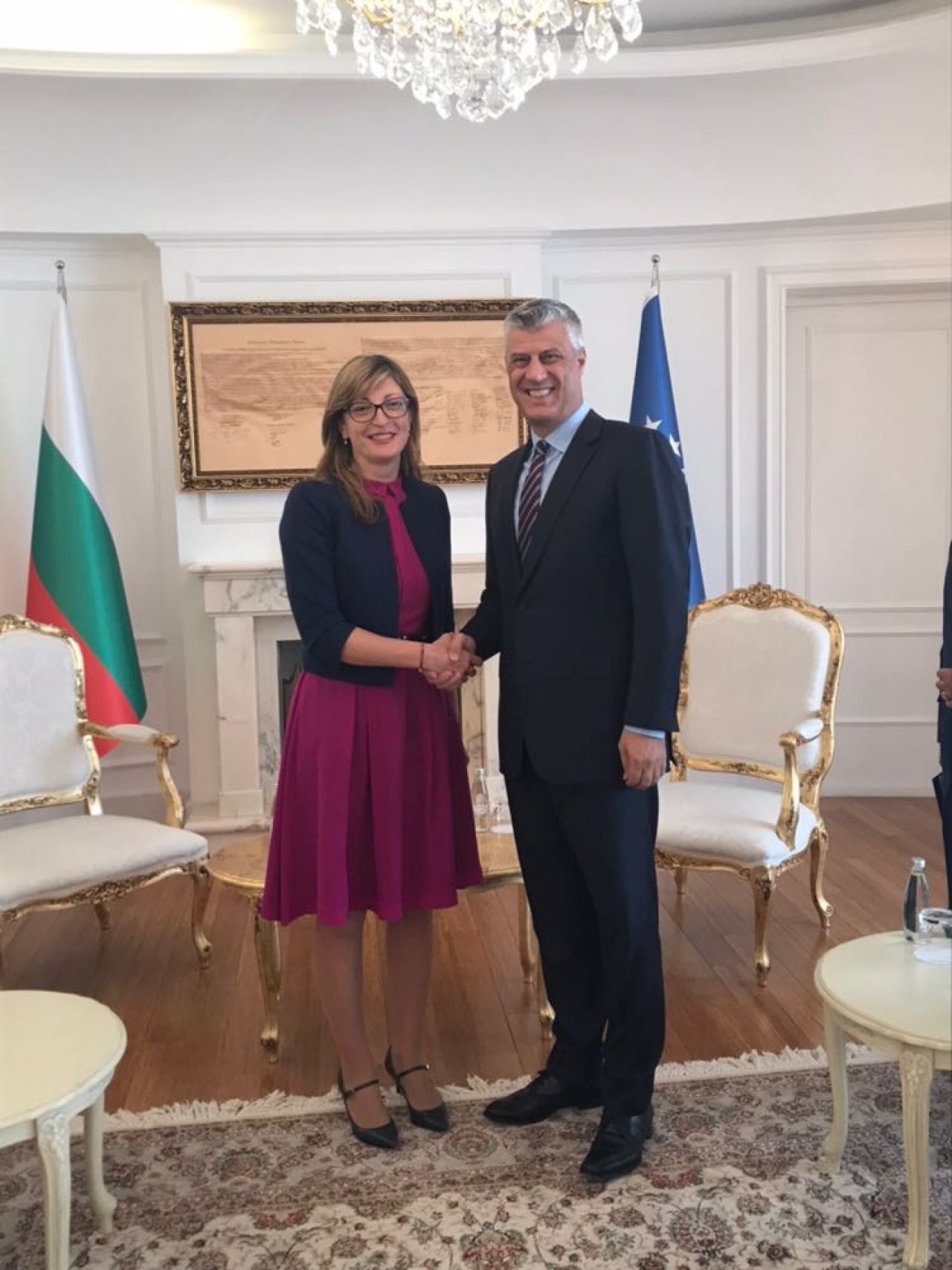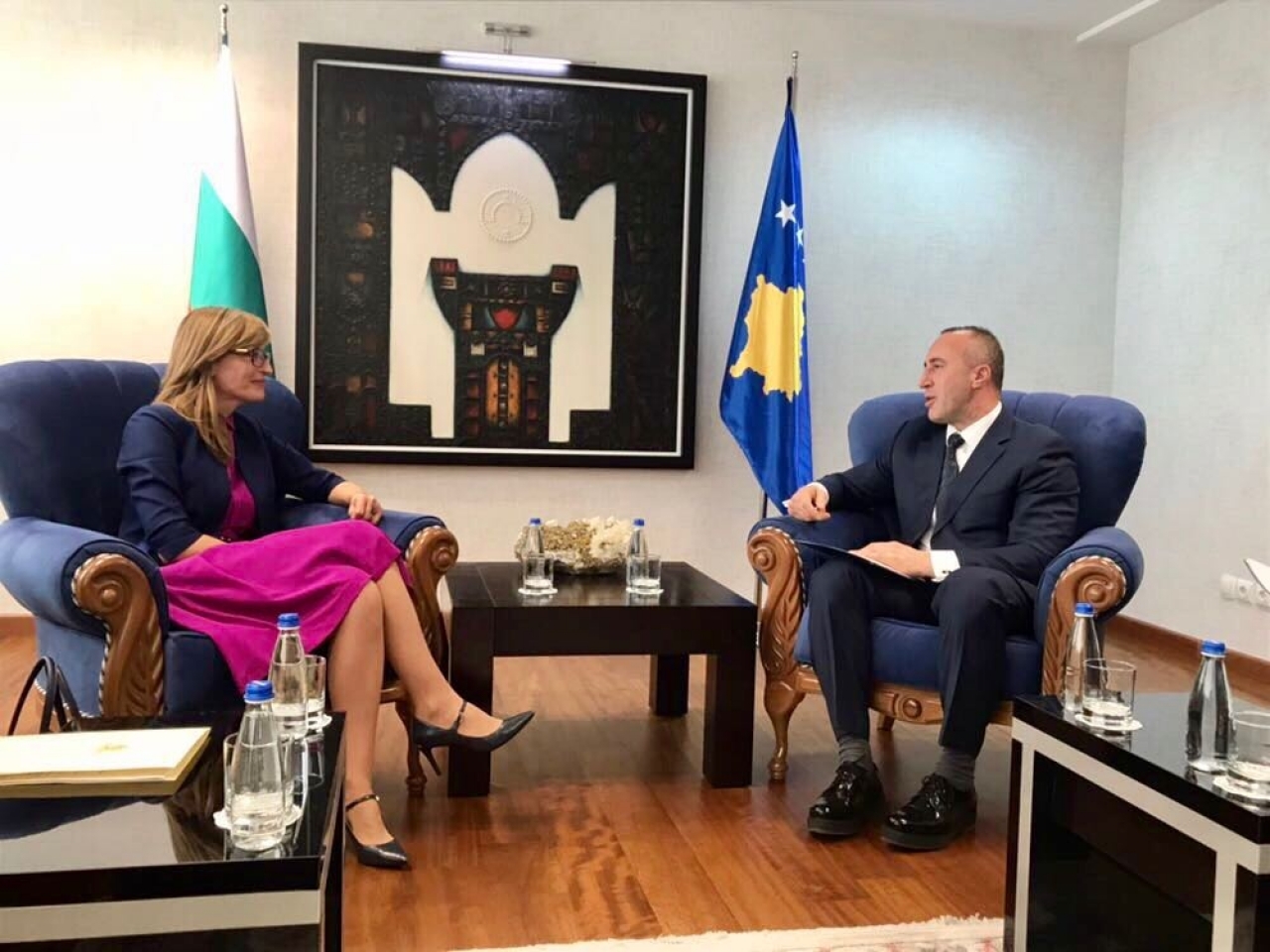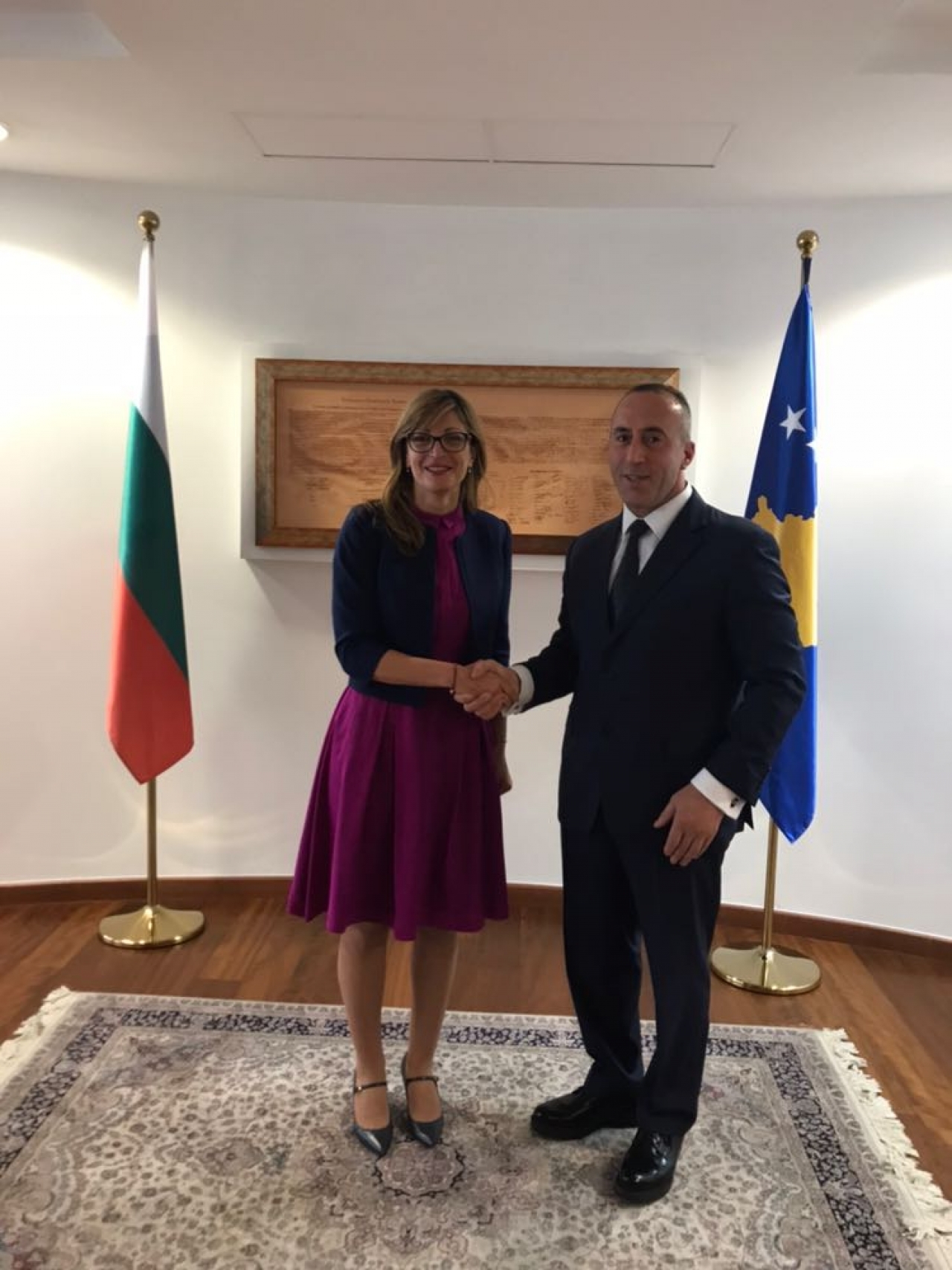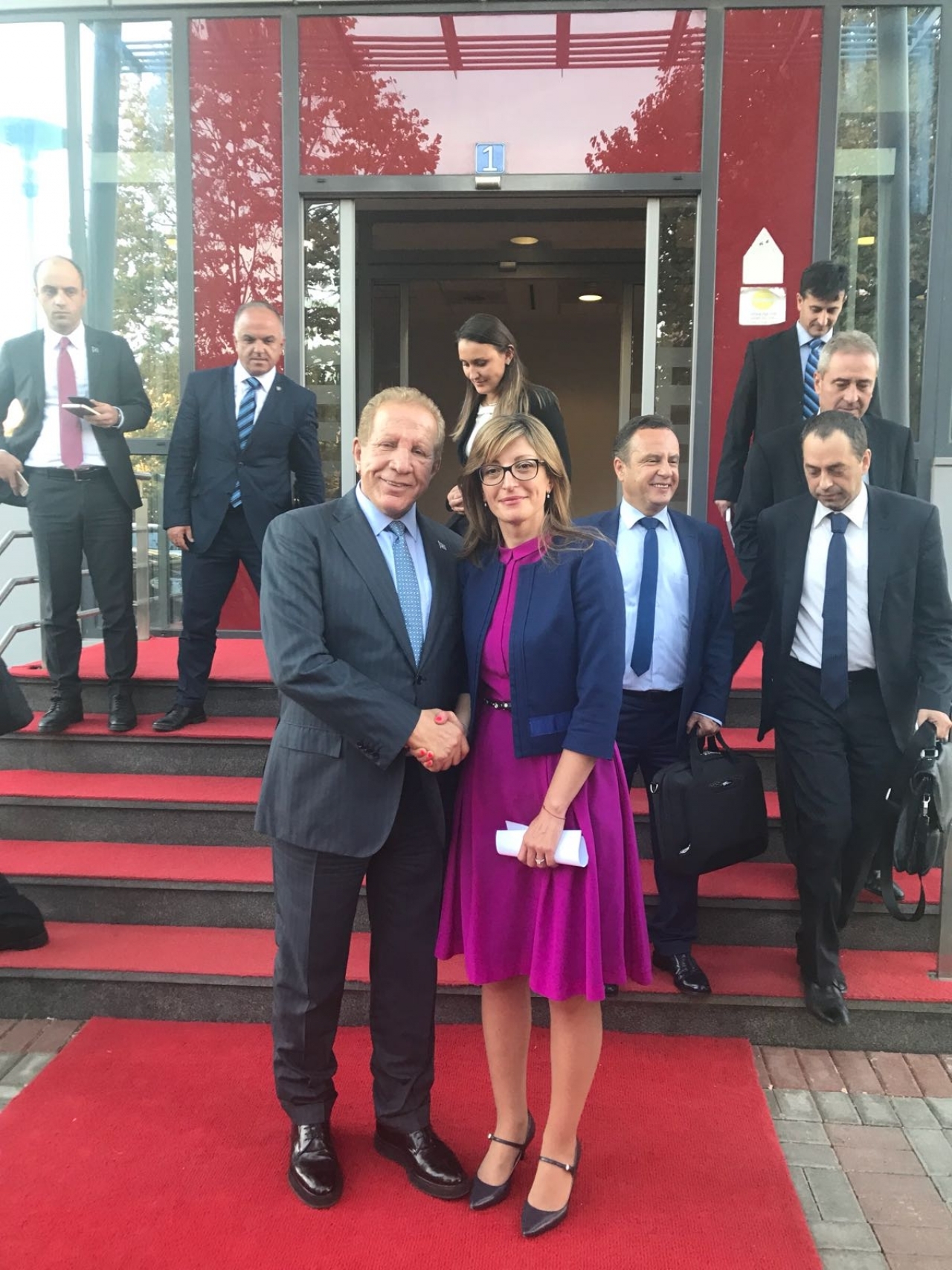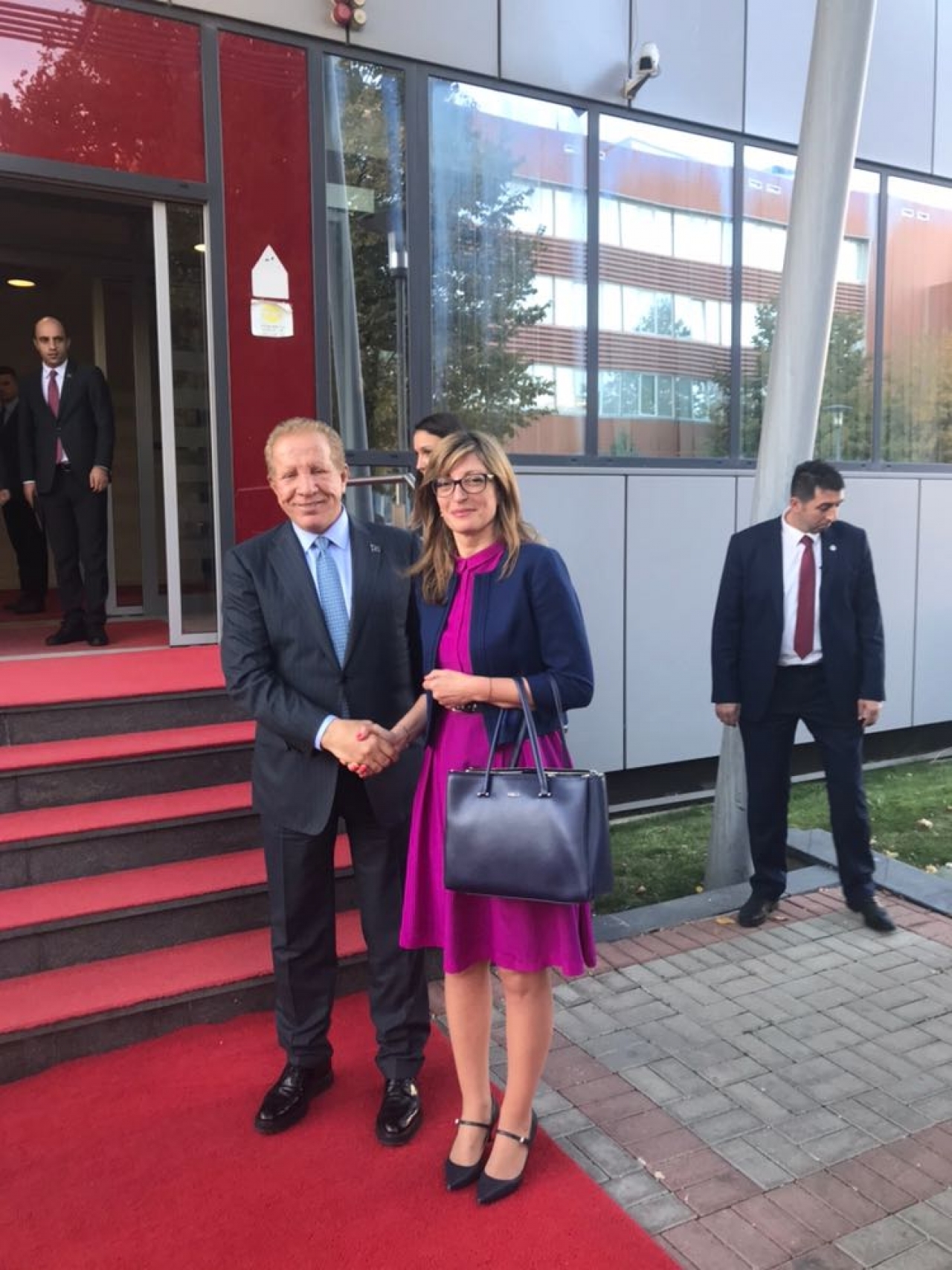Kosovo thanked Bulgaria for supporting its Euro-Atlantic integration
19 October 2017 News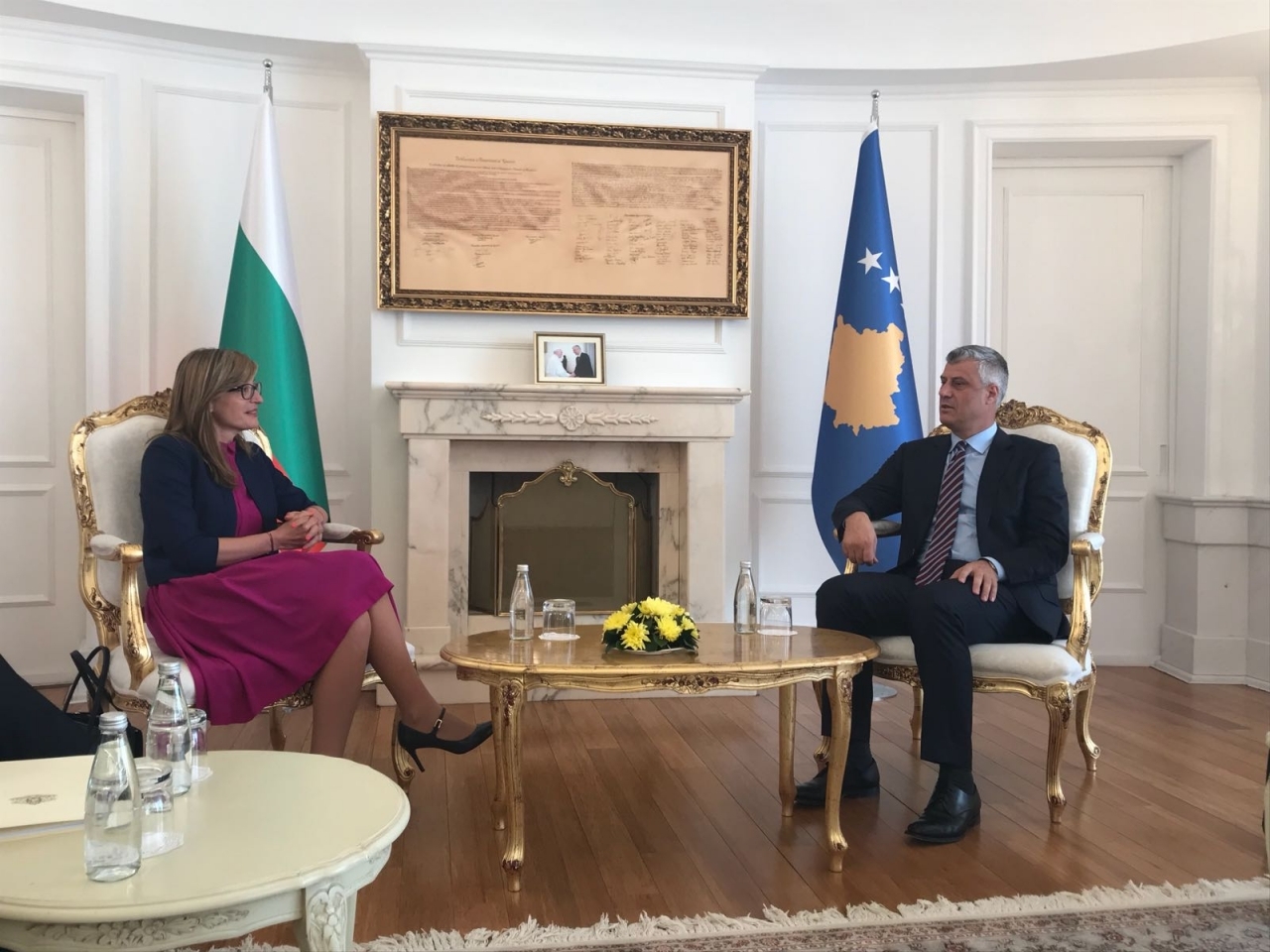
The President, the Prime Minister and the Foreign Minister of Kosovo thanked Bulgarian Deputy Prime Minister and Minister of Foreign Affairs Ekaterina Zaharieva for the support of her country’s Government for Prishtina’s European integration.
The chief Bulgarian diplomat is paying a two-day working visit to the Republic of Kosovo – the last leg of her tour of the six Western Balkan countries which aspire to join the EU and NATO.
“I feel I am in a friendly country, and there are no problems among friends and a solution can always be found,” Deputy Prime Minister Ekaterina Zaharieva said. “Bulgaria will hold the Presidency of the EU Council, and the integration of the Western Balkans is one of our priorities. We are convinced that unless our friends of the six countries in the region are part of the EU, Project Europe will be incomplete. Reforms are carried out for your own citizens, not for the sake of Brussels.”
“At the EU summit in Sofia in May 2018, we want our neighbours to receive not only political support but also a clear plan for each country according to its own merits. Reforms sometimes seem difficult, but they are worth the effort: since joining the EU Bulgaria has trebled its gross internal product, we have a 4 per cent economic growth and under 6 per cent unemployment,” Zaharieva added.
“We must seize the opportunity presented by the fact that five Member States supporting enlargement will hold the EU Presidency: Estonia, Austria, Bulgaria, Romania and Croatia,” Zaharieva emphasised further on.
Her fist meeting in Prishtina was with the President of the Republic Hashim Thaci. “We appreciate and thank you for your support for Kosovo. We regard Bulgaria as a strategic partner, and we need to expand further our economic cooperation. Our goal is NATO and the EU. We are aware of the challenges, but we have no other option. We will continue our dialogue with Serbia as we want our relations to normalise. This will help speed up both countries’ integration. Your Treaty with the Republic of Macedonia sends a fantastic message to the entire region,” Hashim Thaci said.
“Let’s not look back in history but rather look forward in future. Imports and exports are growing, but we need to support them further. I have assigned all our ambassadors to facilitate Bulgarian business. A lot of Bulgarian companies are ready to invest in neighbouring countries, including in start-up business,” Zaharieva said.
Prime Minister Ramush Haradinaj extended an invitation to his counterpart Boyko Borissov to visit Kosovo at his convenience. “I know some very good Bulgarian construction companies whose work here in Kosovo is of high quality. I also know many Kosovars who have graduated from Bulgarian universities. I hope that the visa liberalisation will enable our citizens to discover the beauty of the Bulgarian Black Sea coast, about which I have heard very good things, as well as your winter resorts,” he told Zaharieva.
“I am grateful to you and to the Bulgarian Government for everything you have done for Kosovo. When we declared independence and were looking for new friends, you were there for us, thank you. Your country will be leading the EU as from the beginning of 2018, and I am certain that you will cope. We will always be available when you ask for our support. Our new Government is determined to continue with progress towards the EU. We are resolved to maintain good relations with our neighbours. I am confident that your position in Brussels will push the subject of the Balkans in the right direction,” Zaharieva’s host, First Deputy Prime Minister and Minister of Foreign Affairs Behgjet Pacolli, said for his part in his welcoming remarks.
Ekaterina Zaharieva stressed that the two countries can deepen their cooperation, among other things by arranging joint business forums and by attracting more young people and government employees to receive training and qualification in Bulgaria.
More than 700 Kosovo companies are already doing business with Bulgarian partners, and quite a few young Kosovars have completed their education in Bulgaria or are studying in this country.
The Bulgarian Deputy Prime Minister emphasised that the ratification of the border delimitation agreement with Montenegro is an important factor of progress in the visa liberalisation process. On 4 May 2016 the European Commission recommended lifting visa requirements for Kosovo nationals holding biometric passports, acknowledging that Prishtina has fulfilled the requirements of the visa liberalisation roadmap but expressly noting that Kosovo will have ratified the border demarcation agreement with Montenegro and strengthened its track record in the fight against organised crime and corruption by the day of adoption of the proposal by the European Parliament and the EU Council.
At present the EU is the largest donor under projects that are implemented in Kosovo. Since 1999 Kosovo has received more than EUR 2,300 million. Besides this, the EU has spent over EU 1,000 million on support of the international presence in that country.

